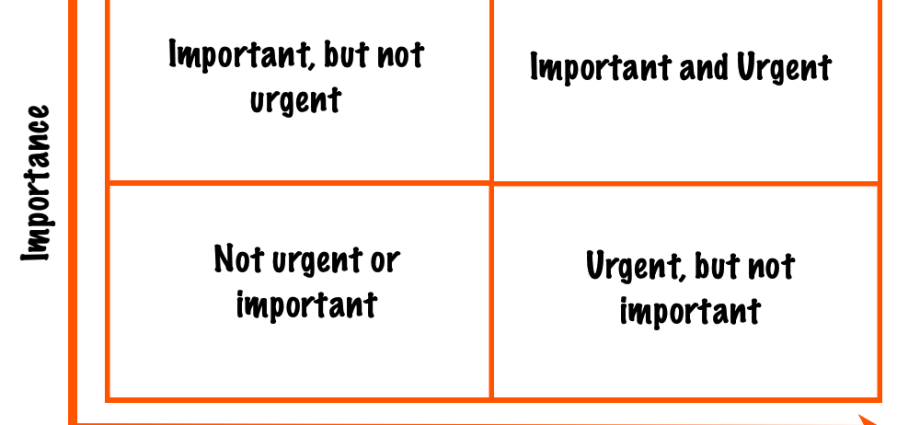Contents
Many of us are consumed by everyday life and daily routine — cooking, parent meetings, going to the clinic, work … How to understand which business is urgent and which is not? How important is delegation of authority and requests for assistance? Clinical psychologist Elena Tukhareli helps to understand.
The world has long stepped forward both in terms of living conditions and in terms of attitudes towards everyday life. It would not be easy to explain to our grandmothers that we do not have time for anything, because they had to manage everything — to work, run a household, feed their families. But in the modern world, time, flexibility and a variety of skills are more valued than the ability to wash «in the hole.» After all, washing and washing dishes today can be “delegated” to household appliances (and then someone has to load dirty laundry into the drum and wipe the dishes after washing), but more important tasks for life cannot.
In order not to become a victim of “blockages”, it is worth learning to separate tasks by priority of execution (if we are talking about professional duties) and by the truth of desire at the moment (if, for example, we are thinking about how to spend the day).
To distribute tasks, it is convenient to use the planning technique — the Eisenhower matrix. It’s pretty easy to create. We write a list of tasks and mark next to each one: is it important or not? Urgent or not? And draw a table like this:
Quadrant A — important and urgent matters
Here are tasks that, if left unfulfilled, jeopardize your goals, and issues related to health. For example, urgent letters, projects that require urgent delivery, sharp pain or deterioration.
With ideal planning, this quadrant remains empty because you do not accumulate tasks that will have to be solved in a rush. It’s not scary if some points appear here, it is important that there are few of them. Otherwise, you will have to revise the list of deadlines and cases.
Quadrant B — important but not urgent
Often this is our main activity: important cases that do not have deadlines, which means that we can work on them in a relaxed mode. These are goals that require planning and are aimed at strategic development. Or things related to self-development and maintaining social ties, for example: listen to a lecture or go to the gym, meet friends, call relatives.
You need to be careful, because if you delay completing tasks from this quadrant, then they can “move over” to the A quadrant.
Quadrant C — urgent but not important
We are talking about distractions: completing the tasks of this quadrant does not help achieve the goal, but on the contrary, it prevents you from focusing on what is really important, reduces efficiency and exhausts you. Most often, these are routine tasks, which, nevertheless, mercilessly “eat up” our precious time.
Delegation will help us deal with them: for example, while you are finishing a report at home, you can ask your partner to walk the dog or pay bills. The main thing is not to confuse them with tasks that should be in the A quadrant: make sure the tasks are really not important.
Quadrant D — non-urgent and unimportant things
This is an extremely interesting quadrant: things gather here that are not useful, but we are terribly fond of. This can be, for example, studying various sites and reading messages in instant messengers — what we usually call «you need to rest sometimes.» Often these activities take time away from other tasks.
This does not mean that you should completely abandon entertainment, but you need to maintain a balance of affairs in each quadrant. If you have an important presentation in a couple of days, then spending time on things from the D quadrant, later you risk facing a rush in the A quadrant.
The example of the matrix shows that it is important for each of us to be able to delegate and be able to ask for help. This does not always make us weak in the eyes of others. Rather, this approach suggests that we are able to adequately assess our capabilities and allocate time and resources.
What about procrastination?
Sometimes it happens like this: things are up to the throat, but you don’t want to take on anything, so you don’t do anything at all. Scrolling through social media feeds or sticking to the series. All this is very similar to procrastination — the tendency to constantly put off even important and urgent things.
Procrastination is not synonymous with laziness, let alone rest. When a person is lazy, he does not experience negative emotions and does not face unpleasant consequences. When resting, it replenishes energy reserves and is charged with positive emotions. And in a state of procrastination, we waste energy on meaningless activities and postpone important things until the last moment. As a result, we do not do everything or do what we need, but we do it poorly, and this reduces our self-esteem, leads to feelings of guilt, stress, and loss of productivity.
Anxious people and perfectionists are more prone to procrastination, who will prefer to take on a task altogether or will constantly postpone it if they cannot complete their plan perfectly enough for their picture of the world. In situations like this, planning things well, finding a trusted person to see them through, and working with secondary benefits can help. That is, it is worth asking yourself the question: what gives me the delay of affairs? What do I get from it?
If you are having difficulty planning and completing tasks and suspect that procrastination is also to blame, try working with a specialist on self-esteem and self-confidence, on the fear of not being perfect and making mistakes. It will be much easier for you to structure your life after that.










